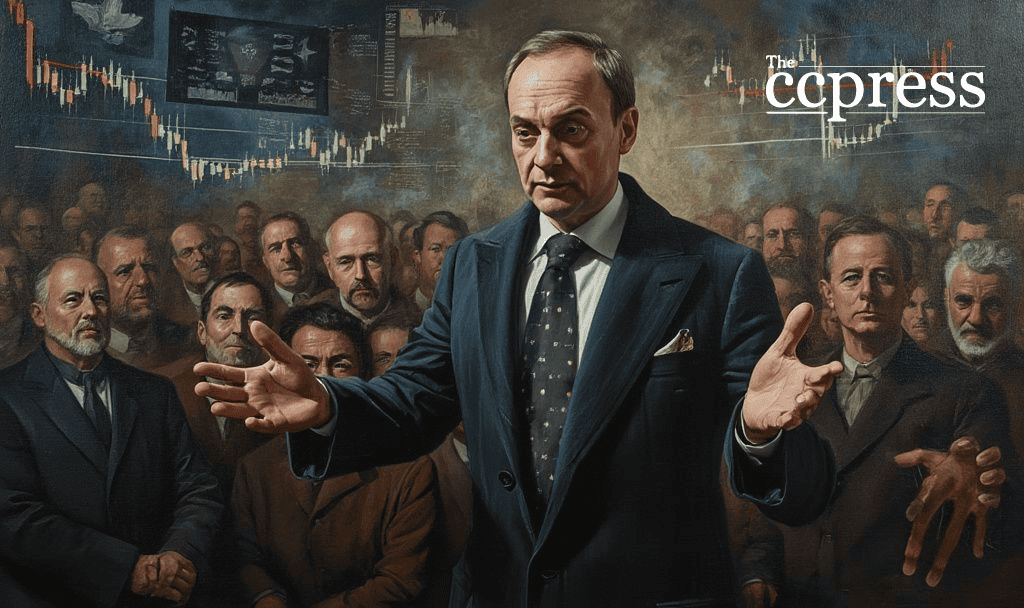- Main event, leadership changes, and financial shifts highlighted.
- Merz urges countermeasures to U.S. tariffs.
- Cryptocurrencies face volatility amid macroeconomic challenges.

Friedrich Merz, Germany’s Chancellor-elect, warns of potential economic turmoil due to U.S. President Donald Trump’s tariff policies, highlighting threats to German exports.
The event underscores global economic uncertainty and immediate market instability due to high tariffs affecting EU countries like Germany.
Friedrich Merz criticizes U.S. President Donald Trump’s sweeping tariff policies, which impose rates from 10% to 54% on imports, impacting German exports.
Merz advocates for pro-business policies like tax cuts to counteract these measures and stabilize the economy.
Merz and Trump are key players in ongoing economic tensions. Trump’s tariffs target 180 countries, including Germany, which faces potential recession and market instability. Merz calls for a free trade agreement, emphasizing proactive fiscal strategies.
The immediate effects on German markets include a 10% stock market drop amid recession fears. Tariffs threaten €161 billion in annual German exports, prompting Merz to propose infrastructure investment strategies.
President Trump’s policies are increasing the risk that the next financial crisis will hit sooner than expected, Friedrich Merz, Chancellor-designate, Christian Democratic Union (CDU), cited in Handelsblatt.
Financial and social implications include disrupted international trade systems and potential economic instability. Market adjustments reflect broader political tensions, impacting industries reliant on transatlantic commerce.
The tariffs have influenced crypto markets, with Bitcoin trading at $84,327 and Ethereum dropping to $1,863. Analysts foresee short-term volatility but expect cryptocurrencies to serve as a hedge against economic disruptions.
Crypto analysts like James Butterfill highlight Bitcoin’s historical role as “digital gold.” Future economic scenarios may enhance crypto’s significance as interest rates and recession risks evolve.
